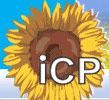|
Ukraine can be admitted to the World Trade Organisation (WTO) this year. This was stated by the Verkhovna Rada People’s Deputy Vasily Antonovich Kalinchuk at the Round Table held by the Center for Ukrainian Reform Education in Odessa on 31 March. The meeting of ministers of WTO member countries will be convened by the end of this year. As a rule, new member admission issues are considered at similar events. Informal stakeholder meeting will take place in June to identify the issues that Ukraine will have to solve by September.
According to Deputy Head of Multilateral Negotiations Unit of WTO Cooperation Department at the Ministry of Economy and European Integration Sergey Lakhno, intensive negotiations are being held with WTO member countries regarding bilateral agreements. Documents have already been signed with 30 countries and workgroups. These agreements are not obligatory provisions for WTO accession but they facilitate this process considerably.
Vitaly Vavryschuk, Ukrainian Centre for International Integration’s Economic Analyst, emphasised that as a result of export opportunities, Donetsk, Dnipropetrovsk, Zaporizhzhya, Poltava, Odesa and Mykolaiv oblasts have all chances to increase their exports. At the same time, Kirovograd, Chernivtsi, Ternopil, Rivne and Volyn oblasts will not actually feel any change in this sector. Due to increased inland market competition Mykolayiv, Odesa, Lviv, Zaporizhzhya, Ivano-Frankivsk and Zakarpattya oblasts may suffer most of all. Ternopil, Kherson, Khmelnytsky, Kirovohrad and Chernivtsi oblasts are rather immune to these processes. Vitaly Vavryschuk considers that oblasts with low vulnerability level have a longer adjustment period while urgent structural reforms at both national and regional levels, labour market liberalization, professional retraining pattern implementation and investment climate improvement should be undertaken in other oblasts.
According to Svetlana Taran, Ukrainian Centre for International Integration’s Economic Analyst, Ukraine’s accession to WTO is viewed by economists predominantly as a positive factor that will promote structural and institutional reforms, establishment of sustainable regulatory environment, and, consequently, improved economic efficiency. However, in terms of territories, the economic integration process is rather unbalanced and asymmetrical as regions differ by their economic development level, production structure, foreign trade structure, number of population etc. Some oblasts have their production focused on domestic consumers while export-oriented enterprises are concentrated in others. Aggravated competition will lead to partial redistribution of resources between economy sectors and individual companies due to trade liberalization. Consequences of Ukraine’s accession to WTO will differ for different oblasts and will depend on the balance of competitive and uncompetitive production enterprises in the economy of each individual oblast.
Ukraine has no alternative to WTO. This opinion was expressed by the Institute for Rural Development’s Expert Tamara Ostashko. Ukraine has already lost some positions due to delay in joining WTO. The rules of this organization are not always favourable for newcomers. This is particularly true in case with agriculture and especially for the countries that have not overcome crisis and depression in their agro-food sectors.
At the same time, Ukraine has neither political, nor economic alternative to the completion of the WTO accession process. Given the situation when all the Ukraine’s key trade partners (in particular, Central, Western, Eastern European and Baltic states) become WTO members, Ukraine may get into trade and economic isolation leading to disastrous consequences.
We should become a kind of Japan in the Central and Eastern European region, Petr Kalita, President of the Ukrainian Quality Association, stated. Aspiring to join WTO with all the ensuing advantages, the Ukrainian Government is gradually meeting requirements set by the international community. This is, primarily, harmonisation of Ukrainian legislation to the international standards. In other words, this is lifting of existing barriers on the way of goods and services to Ukraine and creation of appropriate conditions for foreign companies’ operation in Ukraine. Having met these requirements Ukraine will be undoubtedly admitted to the WTO.
And then Ukraine will face the second, really fundamental problem. This will be the problem of competitiveness of each and every Ukrainian enterprise, Ukrainian organization, and as a result, the entire Ukrainian industry and the Ukrainian economy as a whole. In our opinion, even today there is lack of understanding at all levels and serious defects as regards the issues of quality, business efficiency and competitiveness.
It is true that low competitiveness of Ukrainian enterprises, industry and economy has been mentioned in reports and publications lately. However, nothing is being said about the mechanisms to ensure competitiveness, the necessity to enhance competitiveness through internal business improvement of enterprises and organisations. In fact, this is our weakest link, and, at the same time, this is where the main reserves are for the entire Ukrainian economy to improve its competitiveness. However, the emphasis is still being placed on protecting the domestic market through the application of various barriers. Certainly, it will have to be done to a reasonable extent, especially, at the first stage. But one should not forget that in the conditions of WTO accession such opportunities are cut down sharply and the key tool to raise competitiveness is fundamental quality improvement and business perfection.
Stanislav Vlasenko
|
|




